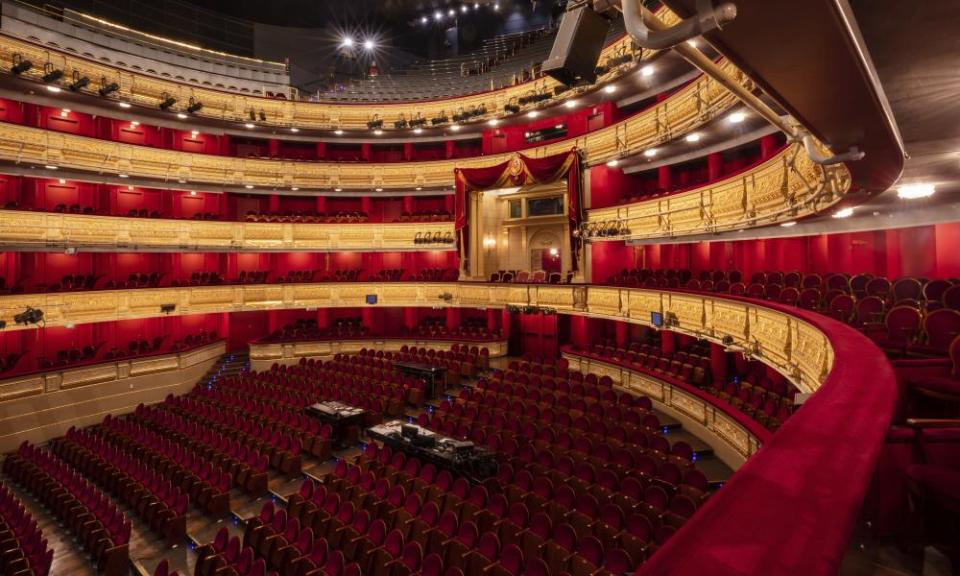Madrid opera halted by audience protest over lack of social distancing

A performance of Verdi’s A Masked Ball was abandoned in Madrid on Sunday night after audience members protested over the lack of social distancing measures – especially for those in cheaper seats.
One member of the audience at the Teatro Real opera house said there were rows of more than a dozen people without any gaps between them.
“Some of the seats had been closed off in the stalls, but in the upper circles, where we were all squashed together, there were whole rows of 15 people right next to each other,” she told El País.
Another member of the audience, the writer and journalist Rosa Montero, said the situation in the stalls was as bad. “In the first 10 rows of the stalls – the most expensive seats – we were all jammed in and there wasn’t a single free space,” she wrote on Twitter, where she also posted a video of the seating. “It was more sheer incompetence than discrimination.”
The Teatro Real said “a small group of spectators” had forced the abandonment of the opera, but said safety guidelines had been followed.
In a statement, it said the house had been operating at just 51.5% of its total capacity – Madrid guidelines limit theatre occupancy to 75% of capacity – and that there had been 905 occupied seats.
“A group of spectators clapped and shouted to express their disagreement with their places,” it said. “The protest continued even after loudspeaker announcements offering to reseat them or issue them with a refund.”
The statement said that while many of the demonstrators were found new seats, a small group carried on their protests. After two failed attempts to begin the opera, the decision was made to bring down the curtain at about 9.10pm.
It added: “The management of the Teatro Real will open an investigation to look into this unfortunate incident and the necessary measures will be taken to ensure that future performances can go ahead as normal.”
Hours earlier, thousands of people had taken to the streets to protest against the regional government’s decision to put 850,000 residents in some of Madrid’s poorest neighbourhoods into a partial lockdown from Monday.
The demonstrators said the move was unfair and that the government of the regional premier, Isabel Díaz Ayuso, should instead be doing more to protect people’s health by giving health centres the staff and resources they lack. Ayuso was criticised last week for suggesting that “the way of life of immigrants in Madrid” was partly to blame for the epidemiological situation.
On Monday, Ayuso and the prime minister, Pedro Sánchez, met and subsequently announced the creation of a Covid-19 group that will convene on a weekly basis to tackle the surge in cases in Madrid.
However, Sánchez said the central and regional government “need to be ready to consider other scenarios if necessary”. Madrid currently accounts for roughly a third of Spain’s 640,000 cases and 30,000 deaths.
From Monday morning, people in the 37 worst-hit zones around Madrid have been subject to limits on their movements. Residents in those areas – where there are more than 1,000 cases per 100,000 people – are only allowed to enter and exit the zones on work, educational, legal or medical grounds.
Public and private gatherings have been limited to six people and parks have been closed.
The Catalan president, Quim Torra, has advised people in the northeastern region against travelling to Madrid, and said that people arriving from the area in and around the capital will be subject to temperature checks at airports and rail stations.

